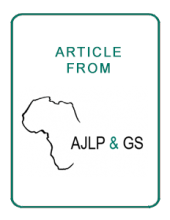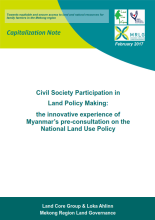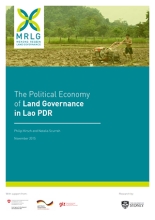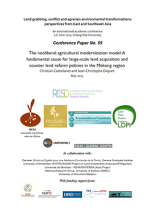Land Library
Welcome to the Land Portal Library. Explore our vast collection of open-access resources (over 74,000) including reports, journal articles, research papers, peer-reviewed publications, legal documents, videos and much more.
/ library resources
Showing items 1 through 7 of 7.Existing land governance system in Zimbabwe subjects vulnerable groups such as women to ‘land corruption’, which entrenches the already existing gendered land inequalities.
Advances in Global Navigation Satellite Systems (GNSS) have revolutionized the geospatial industry around the globe. Recently, the Government of Zimbabwe realized the need to adopt GNSS- Continuously Operating Reference Stations (CORS) for boundary mapping of farms to ensure security of tenure.
Kenya’s development context is greatly influenced by land use and ownership. Consequently land holds immense cultural, spiritual and socio-political significance for nearly all communities. However, proper utilization of land has been besmirched by numerous challenges.
In October 2014, for the first time in recent history, the government of Myanmar decided to organize a public consultation to inform the development of a national policy.
All four countries in continental South-East Asia featured in this paper (Myanmar, Cambodia, Laos and Vietnam) are experiencing land conflicts that could potentially destabilise their governments.1 Thailand is in a similar situation in many respects, as it has faced mounting tensions over land te
This country level analysis addresses land governance in Laos in two ways. First, it summarises what the existing body of knowledge tells us about power and configurations that shape access to and exclusion from land, particularly among smallholders, the rural poor, ethnic minorities and women.
This conference paper examines how the ideology and programmatic set of policies coined in the term ‘neoliberal modernization’ applies to agriculture and practices in the Mekong region.





